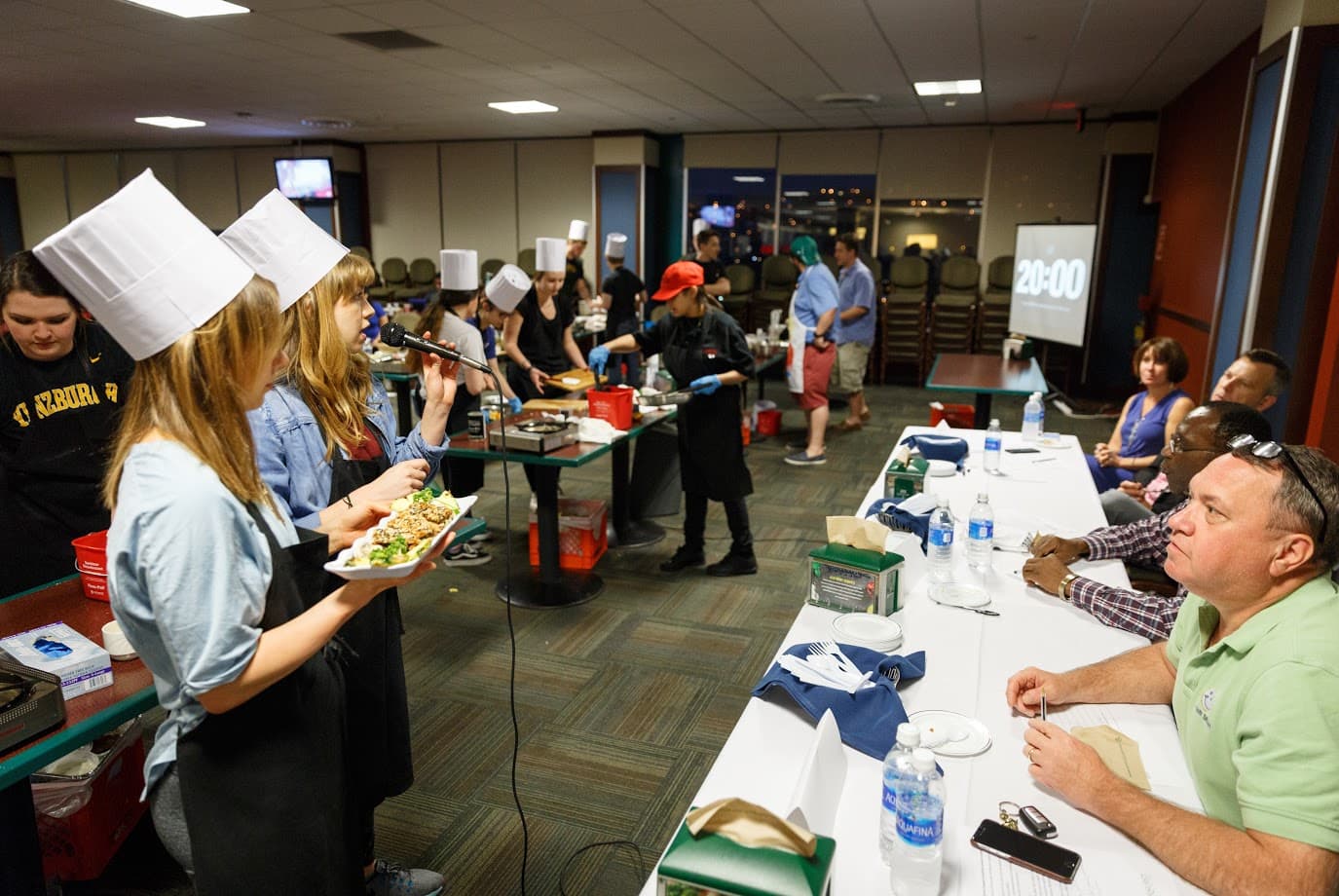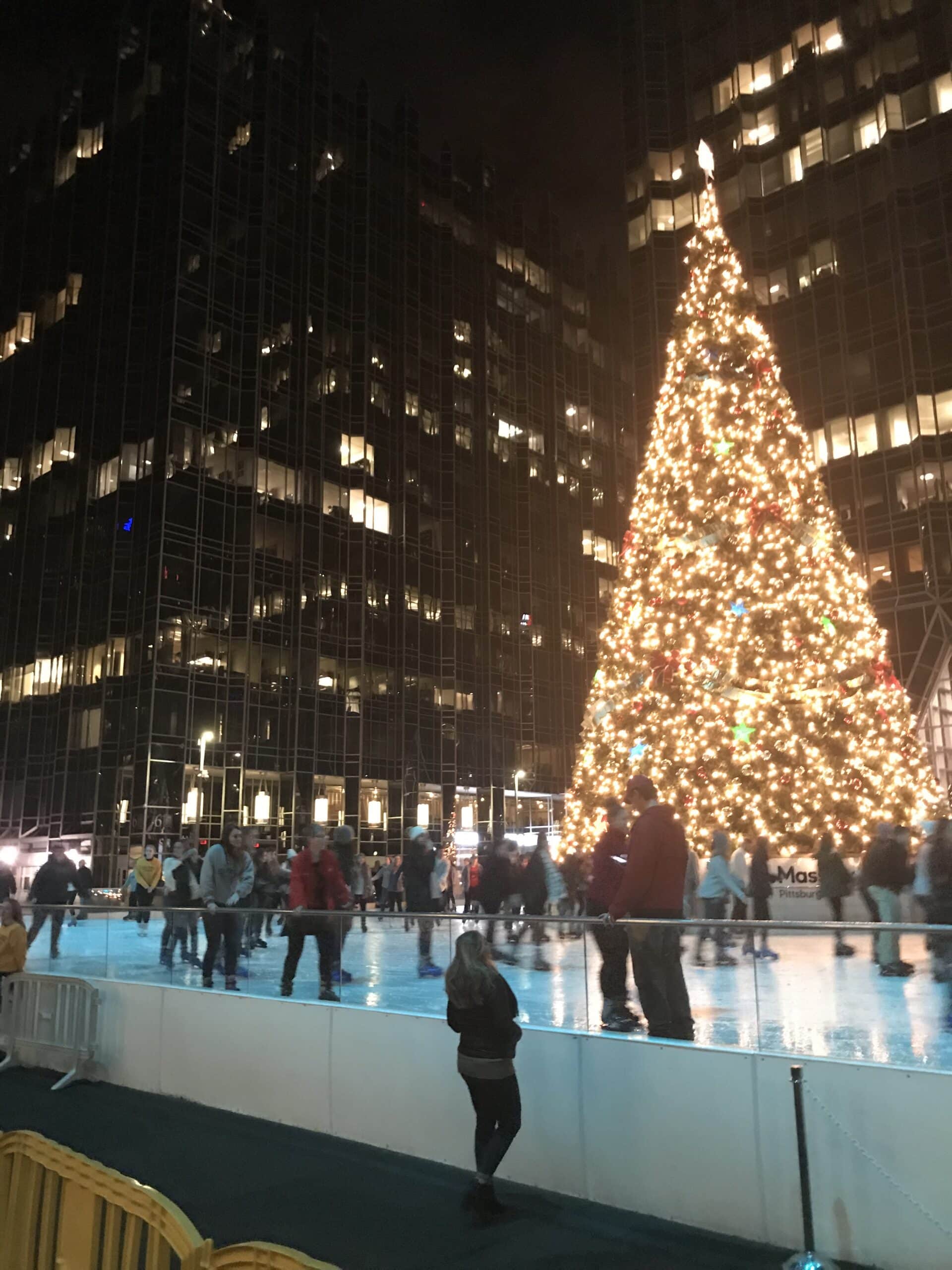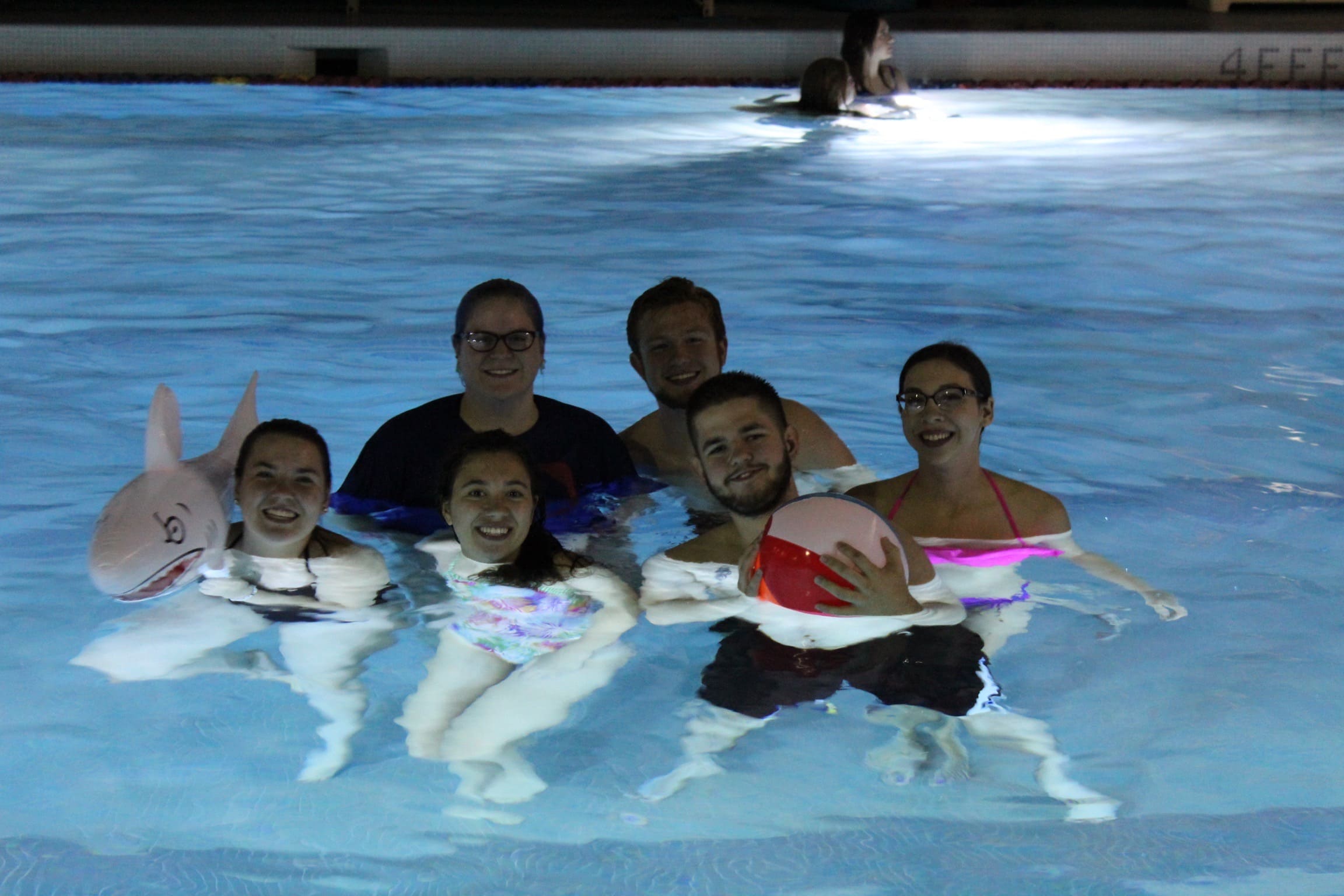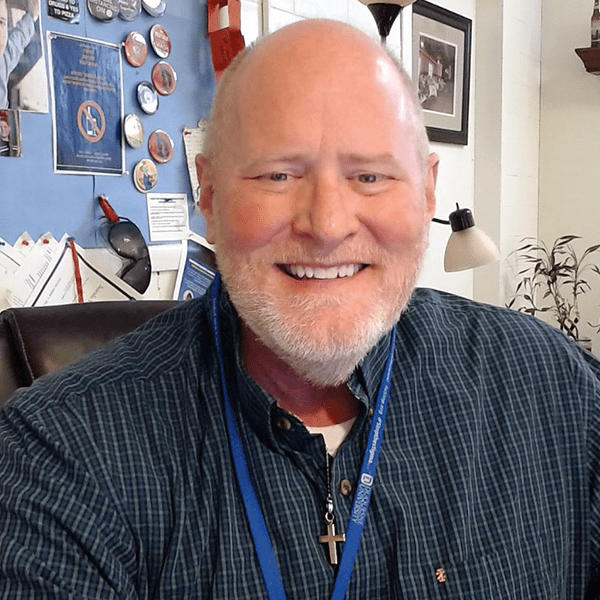TELL US ABOUT YOURSELF AND YOUR ORGANIZATION? WHERE ARE YOU LOCATED AND WHAT IS SOME OF THE WORK THAT YOU DO?
I work at Duquesne University in the city of Pittsburgh. We are a campus in downtown Pittsburgh.
I am the Associate Director of DU CARES, which is the alcohol and other drug education, brief intervention and resources department on campus.
Our focus is on direct contact with students-whether that is reaching them through social media, in the classroom, in small educational classroom settings, and by planning and implementing late night and weekend programs for students.
Of course in the current climate of Covid-19 and the restrictions in place, we have needed to shift some of our efforts in creative ways—online, and smaller in person activities, following the guidelines of the State and University Administration.
For instance, recently (Labor day weekend) we had planned to take a bus load of students to Presque Isle for an outing. However, with the current restrictions and guidelines (off campus activities banned), we hosted a Zoom ‘Paint Monkey’ ™ class for our students. As we are only permitted to have 25 in one ‘socially distanced’ location, we had 25 together in one space, 15 in another, and 10 could participate virtually from their own location. We picked up the paint canvases and individual paint supplies (pre-packaged by Paint Monkey employees) and distributed to students in advance. Then at 7:00 on Saturday night, we had the instructor ‘Zoom in’ to lead the students through the painting experience. This upcoming weekend we will sponsor a ‘dorm room’ friendly cooking class. We will pre-package all needed ingredients and students will pick up in advance. At designated time our Executive Chef will join us on zoom to walk students through a meal they can prepare in their rooms using only ‘dorm allowable’ items.
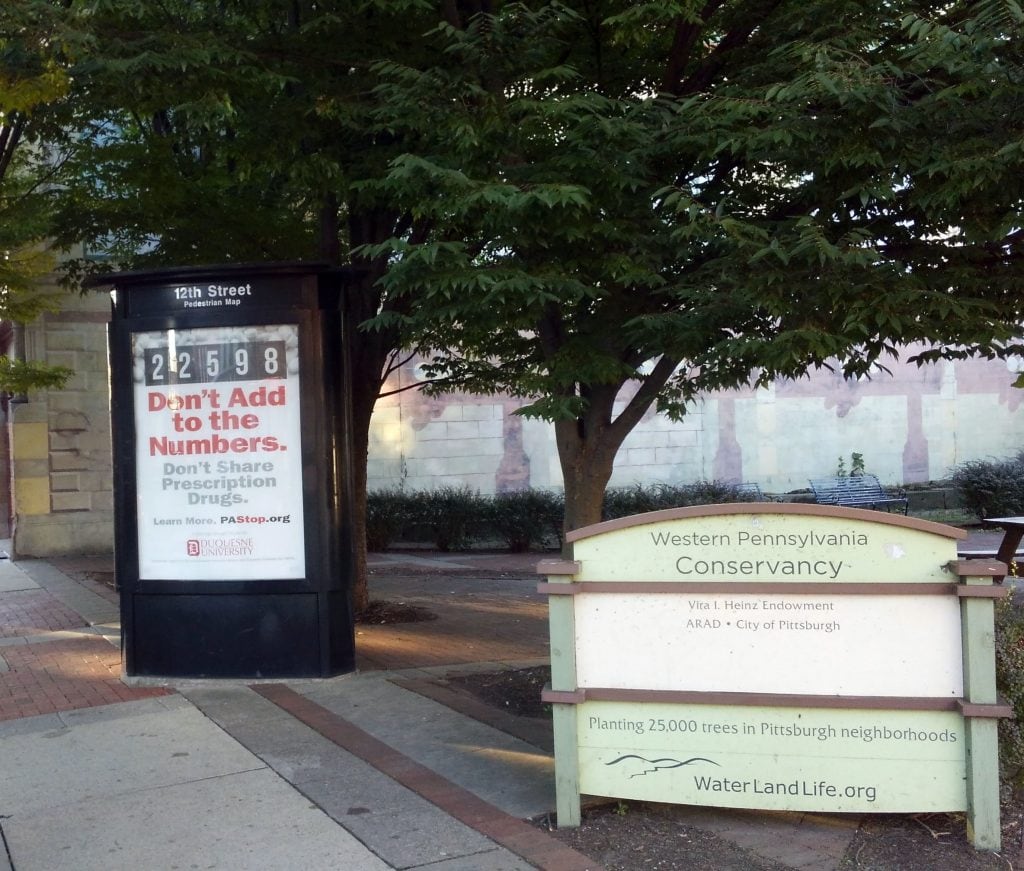
We have also had community outreach through the use of a video we produced that was shown in Drive-In movie theaters over the summer, and indoor movie theaters in September. And we created a billboard messaging series that will be on an electronic billboard on one of the major arteries for commuters in and out of the city of Pittsburgh.
So we are trying to adapt to the restrictions and covid-19 era while still getting our message about the potential harmful use of alcohol and other drugs. We all know this too shall pass. But not as quickly as we would like, so we are trying to maintain contact and visibility throughout.
WHAT KINDS OF PROBLEMS HAVE YOU SEEN IN YOUR COMMUNITY AS A RESULT OF THE OPIOID EPIDEMIC?
Pittsburgh is in Allegheny County, which has seen 564 overdose deaths in 2019 according to the Office of the medical examiner in a report dated July 10, 2020. This represented an increase of 72 deaths from 2018. In September of 2019, there was a highly publicized case of an ‘after party’ where 3 persons died and 4 others were hospitalized after overdosing on fentanyl laced substance. They believed the substance to be cocaine according to reports, not knowing it was laced with the more toxic substance. This was within a 10 minute walk of our campus, and in an area where many of our students live in off campus housing.
Duquesne University’s campus is in the heart of the city. Our CORE Survey data indicates a low self- reported personal use of Opiates (1.1% of incoming first year residential students reporting ‘annual use’), but we can not be blind to the reality that we are located in a high use (and overdose death) area. Thus we continue to provide education, outreach and support to our community.
When we were surveying students to see about needs for a support group, we discovered that there was a stronger desire for a support group for students who have lost a family member or friend to an opiate overdose, more than a ‘personal use’ support group. In collaboration with our Center for Pharmacy Care, School of Pharmacy and the School of Pharmacy student group, we have initiated this group, as well as many other outreach efforts. We are currently planning and scheduling opiate education and Narcan use awareness programs for our Students, Staff and Faculty to begin in September 2020. Sadly we will not be able to do as many in person workshops as we had planned, but we will continue the outreach.
DU CARES has also worked with the Center for Pharmacy Care to provide consultation and help in planning a curriculum targeting future and current Pharmacists across the State on Opiates, Narcan and Reducing stigma of Medication Assisted Treatment. The goal is to reach 500 Pharmacists across the Commonwealth.
WHAT HAVE YOU DONE TO HELP WITH THE PROBLEMS YOUR COMMUNITY (OR YOUR ORGANIZATION) FACES?
We have worked to bring awareness to, provide education and brief intervention for, and reduce the stigma associated with the use of alcohol and other drugs and for the outreach process to obtain support and help.
We have used a multi-pronged platform to address these goals. Our premise is that we need to be visible and credible in our efforts to make change. We also use visible marketing efforts to create consistent, ongoing, messaging ranging from education awareness to prevention to brief intervention and providing resources and referrals as requested and appropriate.
We are utilizing signage on campus, social media platforms (twitter, @DU_CARES), and larger scale projects such as the Drive In movie theaters and billboard messaging to address the issue in a broad based way. Our late night and weekend activities are intentional and purposeful for two reasons: 1. They provide substance free activities for students, and 2. All of the marketing and ‘give away’ materials include resource information, contact information and messaging aimed to reduce the stigma with reaching out for help and support.
Additionally we collaborate with various departments on campus to extend our reach and messaging—such as the Office of Greek Life, Office of Freshmen Development, Office of Commuter Affairs, Office of Student Conduct and various academic schools (Schools of Pharmacy, Nursing and Education for example)
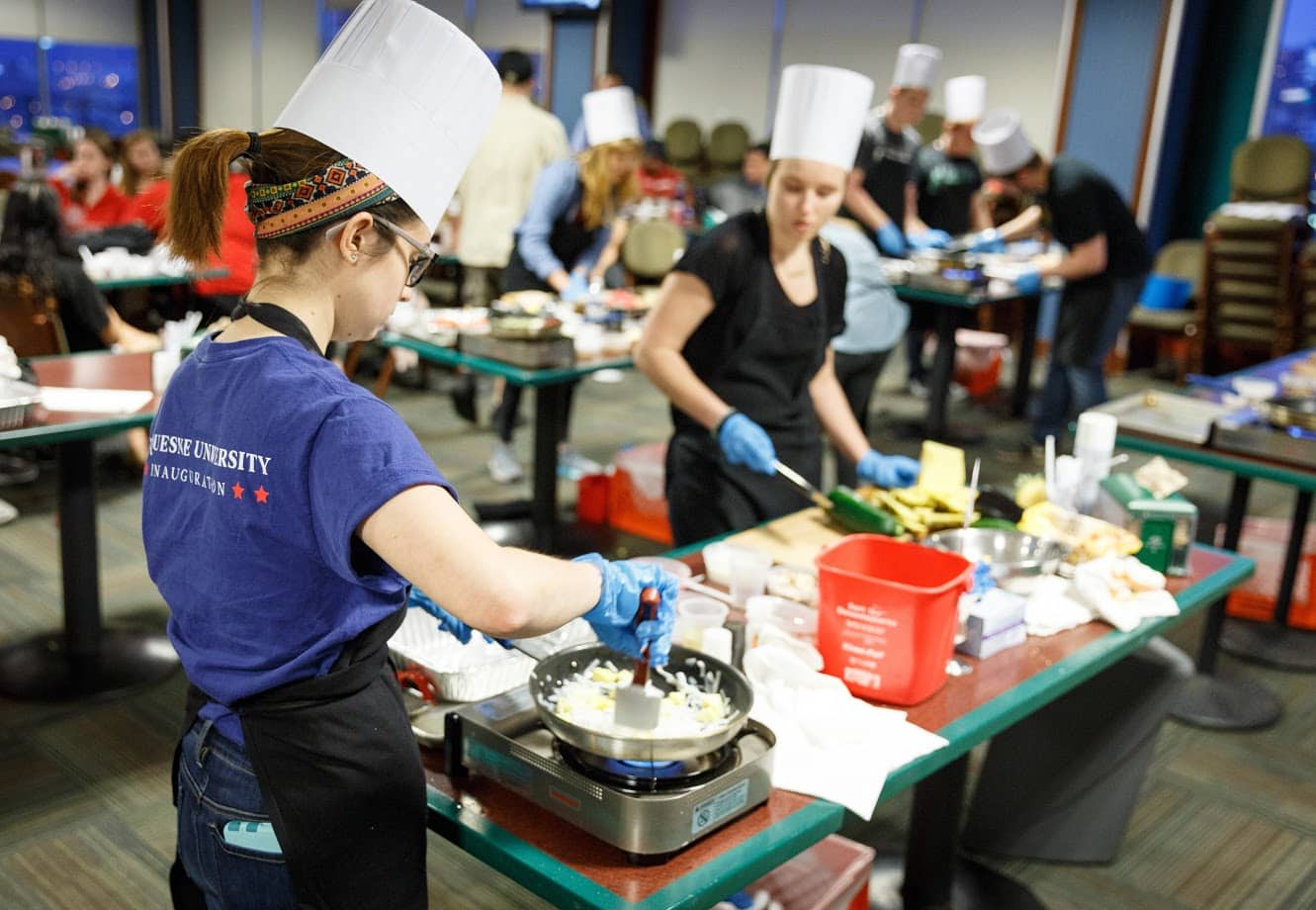
WHAT MOTIVATED YOU TO TRY TO PREVENT SUBSTANCE MISUSE IN YOUR COMMUNITY?
For the first twenty-ish years of my career, I worked with troubled, neglected, and abused kids and their families. Eventually I worked with those who did the perpetrating of those abusive behaviors.
Over a long period of time, I found that alcohol and/or other drugs were involved in a significant amount of those situations. I slowly grew into wanting to do the prevention/brief intervention side of the problem to try to head negative situations off before they became a bigger issue. The best crisis is the one that never happened.
NAME SOME OF THE SUCCESSFUL STRATEGIES YOU HAVE USED.
I think the alcohol and other drug education classes have been received well by our University students. Our post class evaluations typically, over the course of a year, score in an overall range of a 4.5 on a 5 point scale for a mandated class. We’re overall pleased with that.
I try to be creative and age appropriate in our discussions. Fear based messaging in this group has not been received as well. Accurate risk information presented in a fun and relevant way has been my approach. I use a lot of visual props to relate to students and try to make the classes entertaining as well as educational. This starts at freshmen orientation where I juggle eggs on a stage to represent all the things students have to juggle at once; alcohol choices being one of those. Eventually one of the eggs drops and cracks, and the discussion, after offering $100 to come do one thing—put the egg back together with the yolk back inside- leads to “once things some things are done, they can’t be undone”.
We relate this to clinical issues (career, housing, sexual, aggression, etc) as well as legal ones. I also use a lot of social norming messaging. Starting with the cultural narrative that students are ‘supposed’ to drink heavy and have sex when they go to college. I remind them that they are not ‘supposed’ to do either of those things. One is not only not expected, but illegal, and the other should never be ‘an expectation’ or ‘supposed to’ activity.

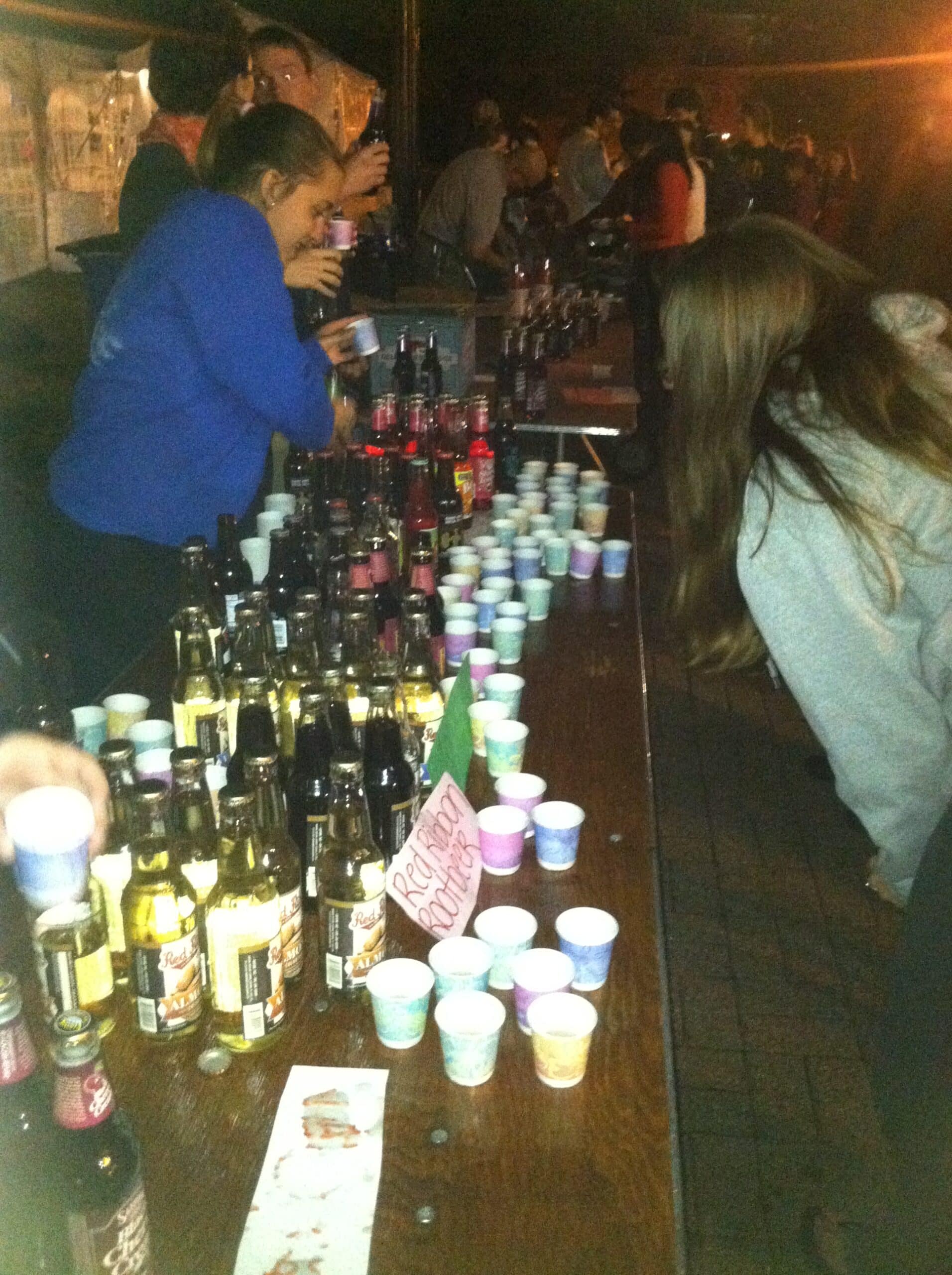
One of my favorite events to do is a “Beer tasting”—Root Beers, Birch Beers, Ginger Beers and other novelty sodas, including ketchup flavor, pickle, hot wing, ranch dressing, bacon soda and a variety of other ‘pops’ . Large turnouts and plenty of discussion.
I also have a huge wooden mallet (used to make log homes) that I will carry over my shoulder while I walk to various presentations. I don’t really smash things with it, but it is the visualization (‘getting big time hammered’) that starts the conversation.
I also plan and implement big programs on campus:
Duquesne Chopped (‘as seen on TV’)—12 teams of 2 to 3 ; renting the outdoor ice rink in downtown Pittsburgh for a private December holiday party )250 students; Late night breakfast the Friday of Finals each semester (December 2019 event had 1350 students attend in a 3 hour period); ski trips; murder mystery parties; Friday night coffee house/open mic/karaoke; and others. This year will look different. But we pray this adjustment is relatively short term. This too shall pass—just not as quickly as we would like.
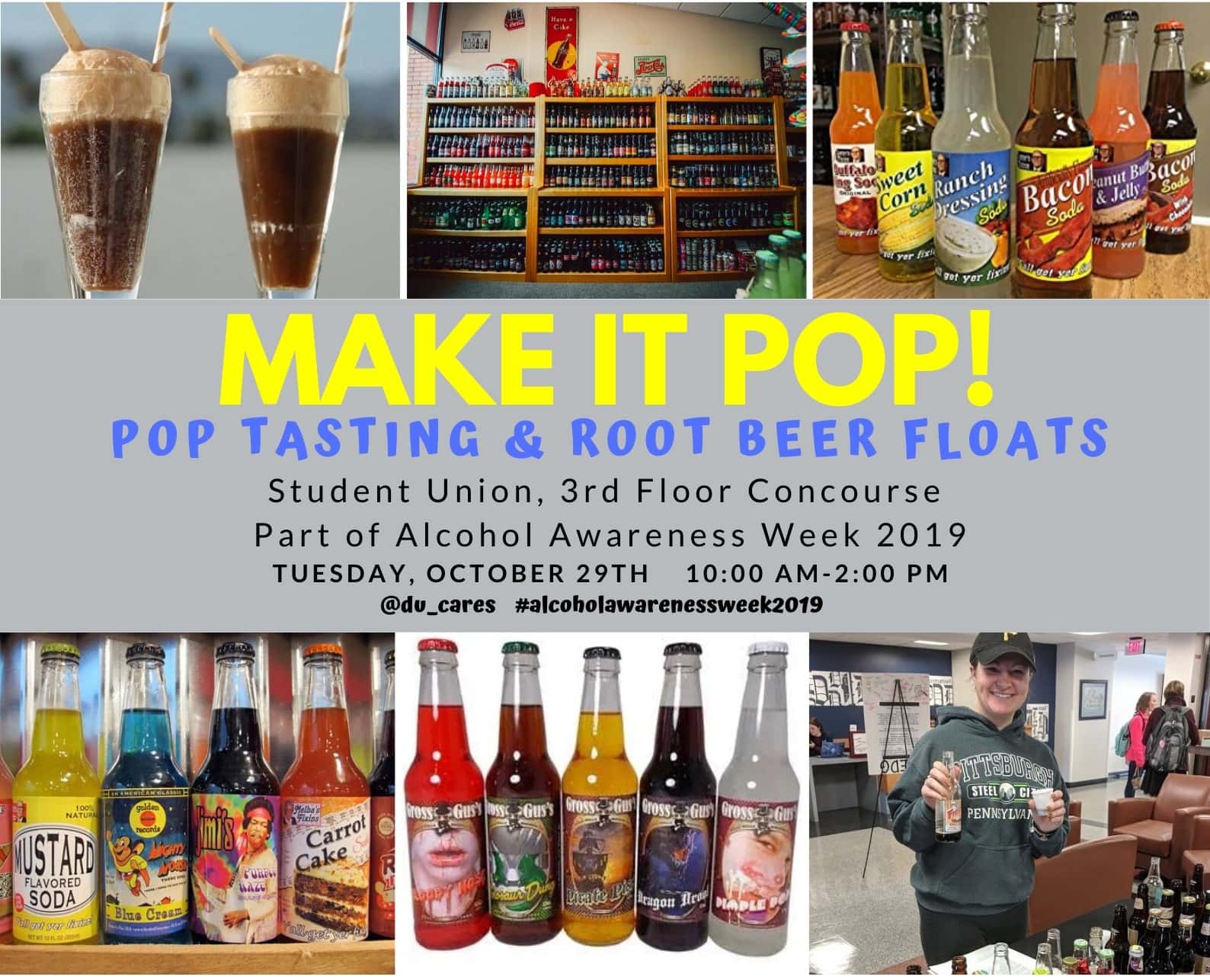
And we use consistent presence, presentations and messaging throughout the school year that shows we really are invested in the safety and success of our students. I’m less concerned about the punitive aspects other than using that for leverage when needed. Elsewise it is about visibility and credulity of our office and efforts. We identify, target and work with our identified high risk populations.
We want to be a destination office for students who are concerned about alcohol and other drugs—whether their own, or someone they know.
IS THERE A PARTICULAR SITUATION THAT STICKS OUT IN YOUR MEMORY RELATED TO THE WAYS YOU’VE TRIED TO MAKE A DIFFERENCE?
A young female student approached me in the lunch line and told me that attending the CARES (mandated) class changed her life. I was hesitant in believing her words and thought she was just joking or was fooling around. So I asked her how. She responded that after our discussion about alcohol, choices, impact of higher BAC’s on behavior (identifying the significant changes in behavior at the .15 level-due to areas of brain impacted AND how much alcohol—or little alcohol—it took to reach those levels) and viewing the sexual exposure chart (C. Everett Koop, former US Surgeon General), she has made much more conscious decisions about her behavior and risk taking behaviors. She said it was life changing. That was a conversation worth remembering.
But I have had many other students say things like that in various ways.
And the sticking point is when my own kids tell me their student friends (and those in the community who I have worked with) tell them how beneficial the class was to them and how it challenged them to view things differently than the way they had prior to attendance.
“Putting beans on the other side of the scale of decision making” as I like to say.
